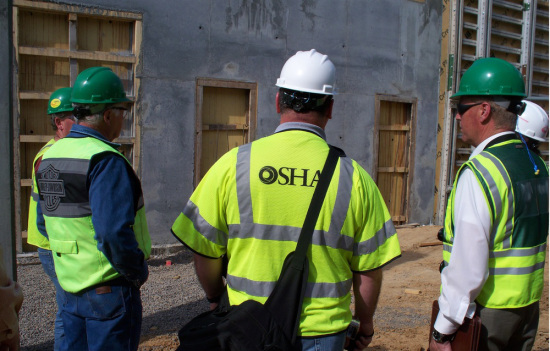OSHA Adjusts Enforcement Efforts During Pandemic

The Occupational Safety and Health Administration is taking steps to protect its compliance and safety officers during the coronavirus pandemic while giving them discretion to consider an employer’s good faith efforts.
OSHA has issued an Interim Enforcement Response Plan that provides instructions and guidance to area offices and their compliance and safety officers for handling COVID-19-related complaints, referrals, and severe illness reports.
“Due to the COVID-19 outbreak, OSHA area offices will use their resources to fulfill mission essential functions and protect workers while also taking appropriate diligence to protect our own personnel,” the plan states.
It provides interim procedures that allow flexibility and discretion for OSHA field offices to maximize the agency’s impact “in securing safe workplaces for workers in this evolving environment.”
“As with responding to any complaint, an examination of the facts will guide the determination of the best enforcement approach and appropriate action to take based on the employer’s response,” the plan says.
Employer Response
How an employer responds to an OSHA inquiry will become a factor “as the various parties navigate these unchartered waters.”
That is why OSHA issued interim guidance that gives compliance and safety officers discretion in enforcement when considering an employer’s good faith efforts during the pandemic.
During an inspection, compliance and safety officers should determine an employer’s compliance efforts with standards that require annual or recurring audits, reviews, training, or assessments, the plan says.
Officers should evaluate if the employer:
- Explored all options to comply with standards, including use of virtual training or remote communications
- Implemented interim alternative protections, such as engineering or administrative controls
- Rescheduled the required activity as soon as possible
Workplace Closures
Employers not able to complete OSHA requirements because state or local authorities required a workplace to close should show a good faith attempt to meet requirements as soon as possible after reopening.
“OSHA will take these good faith efforts into strong consideration when determining whether it cites a violation,” the agency said.
OSHA may issue a citation if it finds an employer cannot show any efforts to comply.
COVID-19 restrictions may limit the availability of OSHA employees, consultants, or contractors.
The agency will develop a program to conduct monitoring inspections from a randomized sampling of cases where the agency noted violations but did not issue citations.
OSHA also advises that restrictions due to COVID-19 may limit the availability of its employees, consultants, or contractors who normally provide training, auditing, inspections, testing, and other essential services.
These restrictions may also limit access to medical testing facilities.
The response plan will remain in effect until further notice.
For more information, contact CBIA’s Phillip Montgomery (860.244.1982).
RELATED
EXPLORE BY CATEGORY
Stay Connected with CBIA News Digests
The latest news and information delivered directly to your inbox.


